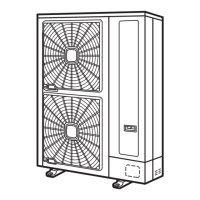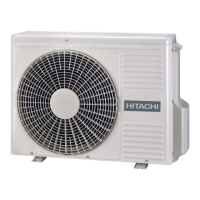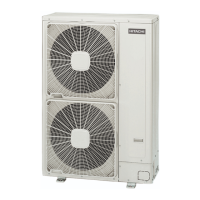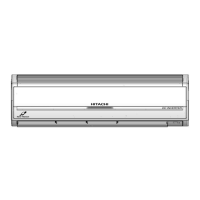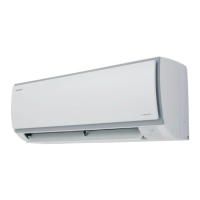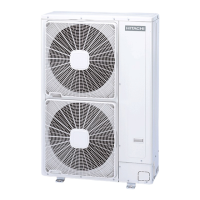Installation of remote controller17
17 INSTALLATION OF REMOTE CONTROLLER
17.1 INSTALLATION OF REMOTE CONTROL SWITCH (PC-ART EXAMPLE)
PC-ART
All data related to Installation about Remote Control Switch are in the specic Installation Manual.
Please refer to Installation Manual PMML0177A for PC-ART and PMML0225A for PC-ARF.
18 TEST RUNNING
When installation is completed, perform test run according to the
following procedure, and hand over the system to the customer.
Perform test run regarding indoor units one by one in order, and
conrm that the electrical wiring and the refrigerant piping are
correctly connected.
Test run should be performed according to the Test run procedure
on next page.
CAUTION
Do not operate the system until all the check points have been
cleared:
• Check to ensure that the electrical resistance is more than
1 MΩ, by measuring the resistance between ground and the
terminal of the electrical parts. If not, do not operate the sys-
tem until the electrical leakage is found and repaired. Do not
impress the voltage on the terminals for transmission 1 and 2.
• Check to ensure that the stop valves of the outdoor unit are
fully opened, and then start the system.
• Check to ensure that the switch on the main power source has
been ON for more than 12 hours, to warm the compressor oil
by the oil heater.
• Pay attention to the following items while the system is run-
ning:
• Do not touch any of the parts by hand at the discharge gas
side, since the compressor chamber and the pipes at the dis-
charge side are heated higher than 90°C.
• DO NOT PUSH THE BUTTON OF THE MAGNETIC
SWITCH(ES), it will cause a serious accident.
• Do not touch any electrical components for more than three
minutes after turning OFF the main switch
• Conrm that the gas line stop valve and the liquid line stop
valve are fully open.
• Conrm that the leakage of the refrigerant does not exist. The
are nuts are sometimes loosened by vibration during trans-
portation.
• Check that the refrigerant piping and the electrical wiring con-
form to the same system.
• Conrm that the dip switch setting on the printed circuit board
of the indoor units and the outdoor units are correct.
• Check whether or not the electrical wiring of the indoor units
and the outdoor units are connected as shown in the chapter
Electrical wiring.
CAUTION
Conrm that eld-supplied electrical components (main switch
fuse, fuse-free breaker, earthleakage breakers, wires, conduit
connectors and wire terminals) have been properly selected ac-
cording to the electrical data given in the Technical Catalog of the
unit and ensure that the components comply with national and
local codes.
NOTE
• For more reference check Troubleshooting chapter on Ope-
ration part.
• For 2 indoor units system check the indoor unit outlet air
temperature at test run. If the temperature difference is large
(aprox. 10 deg. or more (cooling) 20 deg. or more (heating)
recheck the refrigerant piping, Installation may have some
problem.
• In the case of anual cooling optional function, cut JP1 out and
set the DSW6-1 to OFF. (Individual control is not available
when anual cooling is selected), (IVX series only).

